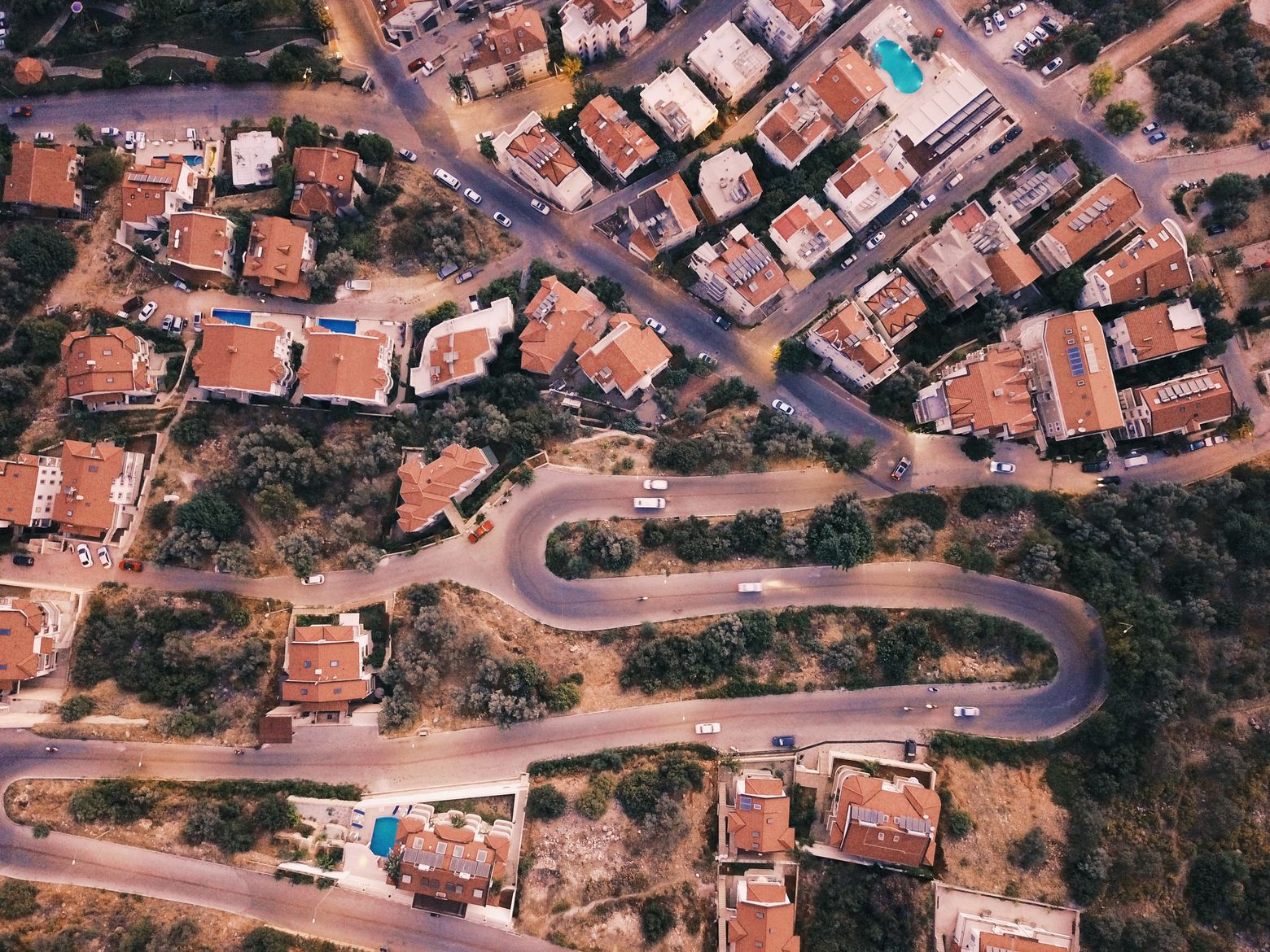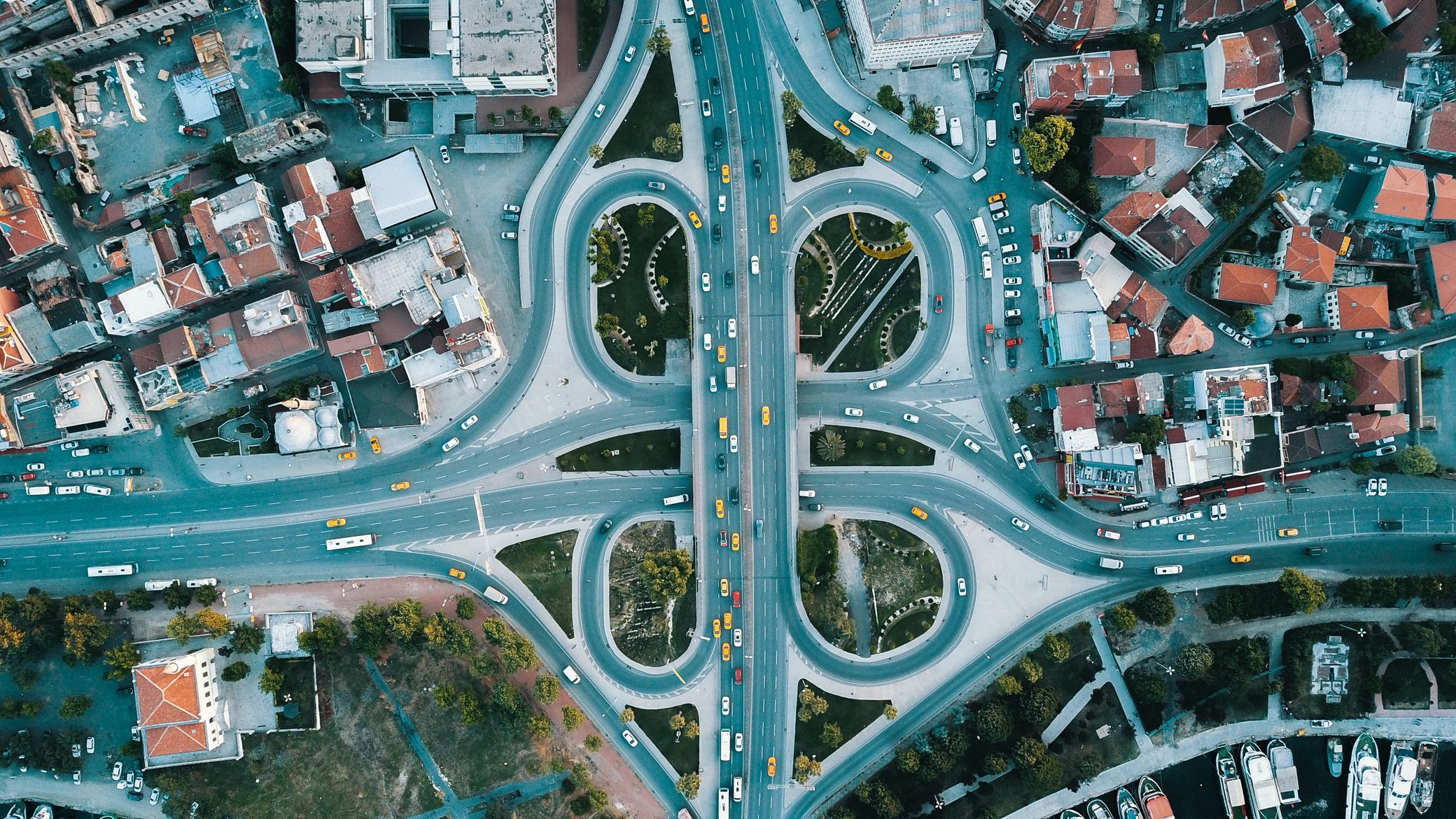Turkey Traffic Guide
By car through Turkey
Turkey is dotted with scenic landscapes and significant archaeological sites. To explore all the interesting corners of this country, which spans over 700,000 square kilometers, a road trip by car is particularly suitable.
In this guide, you will learn more about important traffic rules and road conditions in Turkey. Additionally, you will find out how to travel with your own vehicle and what to be aware of in road traffic.
Overview of Turkey's traffic rules
- In Turkey, you can drive from the age of 18, and the EU driving license is generally sufficient.
- Turkey drives on the right-hand side.
- Within urban areas, the speed limit in Turkey is 50 km/h. Outside urban areas, the maximum speed is 90 km/h, while on motorways, it is 120 km/h.
- In Turkey, all vehicle occupants must wear seat belts. Using a mobile phone while driving is only permitted with a hands-free device. The use of radar detectors is prohibited.
- All vehicles in Turkey must carry a high-visibility vest, first aid kit, and warning triangle. It is recommended to carry two warning triangles. Vehicles with Turkish registration (including rental cars) must also have a fire extinguisher on board. It is also recommended for vehicles from abroad to carry a fire extinguisher.
- The legal alcohol limit in Turkey is 0.5‰. Drivers with a trailer must not have consumed any alcohol. The limit for professional drivers is 0.2‰.
Trams generally have the right of way. - When overtaking in Turkey, it is required to honk the horn. It is also recommended to honk in blind curves to warn oncoming traffic.
- In case of accidents, the police must be notified immediately. Vehicles with noticeable body damage can only leave the country with a police damage confirmation.
Driving in Turkey
The roads in Turkey
Despite its size and the sometimes very mountainous terrain, Turkey has a good road network. The condition of the larger intercity roads is considered to be very good. However, you should be particularly cautious when driving off the main roads in rural areas.
In the mountain regions, you will encounter narrow stretches, sharp curves, and steep descents that are not or only partially secured. Hazard spots, construction sites, and animal crossings are rarely marked here. Additionally, you may encounter individual animals or whole herds crossing the road. Particularly when you are heading to smaller villages or less-known archaeological sites, expect to encounter unpaved gravel tracks.

Another challenge can be other road users, especially in the cities where traffic is often very dense and lively. Additionally, traffic rules are not always adhered to.
Turkish drivers frequently use their horns to warn other road users. Do not take this as an insult to your driving style, but rather as a friendly reminder.
Outside of the cities, you may encounter vehicles that do not meet the standards common in Britain. Since these often have inadequate or no lighting, they can pose a danger, especially at night. Therefore, the Foreign Office recommends avoiding driving at night in Turkey, even on larger intercity roads.
Petrol stations and charging points
Petrol and diesel: Petrol and diesel are relatively inexpensive in Turkey. Petrol stations are often identifiable from a distance by a Turkish flag and usually offer full service with an attendant who handles the refuelling process for you. The availability of petrol stations varies greatly by region. Especially along the Turkish Riviera coast, there are numerous petrol stations, some of which are open 24/7. In the mountainous inland areas, petrol stations are much less dense.

Electric cars: The charging network for electric vehicles in Turkey is currently being expanded. There are already about 6,000 charging stations where you can charge your electric car. The majority of charging options are located in the west along major transport routes and in cities like Antalya, Izmir, and Ankara.
As you travel towards the central part of the country or eastwards, the charging network becomes sparser. Here, you should prepare thoroughly before travelling with an electric car.
Hydrogen cars: There are currently only a few hydrogen filling stations in Turkey, which are far apart. Therefore, travelling to Turkey with a hydrogen car is not yet advisable.
Rental car or own car?
Turkey can be accessed by car through Bulgaria. If you're bringing your own car, you'll need an International Insurance Card. Make sure that your insurance is valid throughout Turkey. Additionally, you must affix the oval county sign on your car.
Upon entry, Turkish customs will issue you a form specifying the latest date for re-exportation, which is typically 30 days after import. Extensions up to 90 days are possible upon request. You should avoid exceeding this period at all costs.
If you prefer not to bring your own car, renting a vehicle in Turkey is a viable option. Rental cars from all major providers are available, especially in tourist regions along the coast, in large cities, and at airports. Since Turkey is a popular holiday destination, it is advisable to book your preferred vehicle well in advance during peak travel seasons. The minimum age for renting a car varies between 21 and 28 years, depending on the vehicle class, with a required driving experience of at least one to three years.
Fines
In Turkey, fines for traffic violations can be demanded on the spot by the police. It can be worthwhile to settle fines immediately or within the next 15 days, as doing so can result in a discount of about 25 percent.

Excerpt from the fine catalog:
- Speeding (20 km/h over the limit): from 50 Euros (approx. £43)
- Speeding (50 km/h or more over the limit): from 100 Euros (approx. £85)
- Violation of the seatbelt requirement: 25 Euros (approx. £21)
- Illegal parking: from 70 Euros (approx. £60)
- Drinking and driving: from 215 Euros (approx. £184)
- Red light violation: from 60 Euros (approx. £51)
- Using a mobile phone while driving: 25 Euros (approx. £21)
Conclusion: How to drive in Turkey
Road traffic in Turkey has its unique characteristics and challenges. However, with considerate driving and the necessary caution, you can explore the country very effectively via its extensive road network.
► Here you can find more information about the toll regulations in Turkey, to be optimally prepared for your trip.






